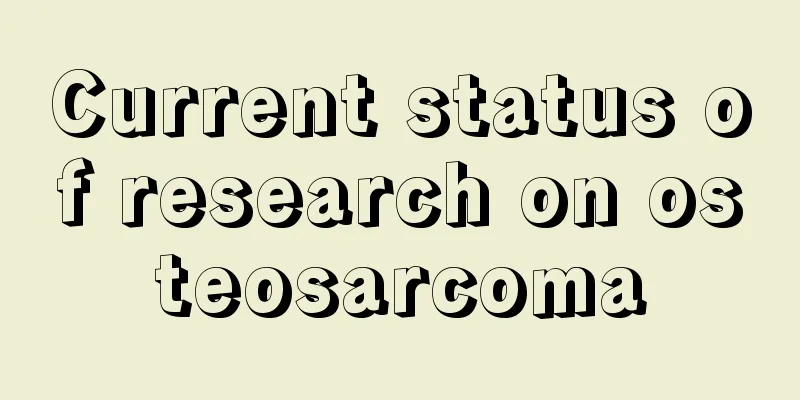The drug of choice for trigeminal neuralgia

|
The trigeminal nerve is a type of cranial nerve. This disease is more common among women. When suffering from trigeminal neuralgia, the patient will feel unbearable pain. This disease is mainly caused by lesions in the trigeminal nerve. In order to treat this disease, drugs can be used to help treat it. So what drugs are effective in treating this disease? Let’s learn about it together today. Trigeminal neuralgia is the most common cranial nerve disease, with recurrent paroxysmal severe pain in the trigeminal nerve distribution area on one side of the face as the main symptom. The domestic incidence rate is 52.2/100,000, slightly more in females than in males, and the incidence rate may increase with age. Trigeminal neuralgia mostly occurs in middle-aged and elderly people, and is more common on the right side than on the left side. The disease is characterized by sudden onset, sudden cessation, lightning-like, knife-like, burning-like, persistent, and unbearable severe pain in the trigeminal nerve distribution area of the head and face. Talking, washing the face, brushing teeth, or a breeze blowing on the face, or even walking can cause paroxysmal severe pain. The pain lasts for several seconds or minutes and occurs periodically, with the intervals between attacks being the same as for normal people. The drug of choice for treating trigeminal neuralgia is carbamazepine. Early, mild trigeminal neuralgia can be effectively relieved by medication. However, patients with long-term and severe pain cannot be effectively controlled by medication, and the side effects of the medication are significant and require long-term use. Trigeminal neuralgia caused by wind evil attacking the collaterals: The treatment often adopts the method of clearing the stomach and purging fire, supplemented by the method of unblocking the collaterals and relieving pain. Prescription: 30 grams each of gypsum and calcined cassia seed, 10 grams each of angelica dahurica, rhubarb, and cimicifuga (fried with children's urine), 6 grams each of chuanxiong, platycodon, and scorpion, and 2 centipedes. After taking the medicine, the pain is reduced and the bowel movement is normal. The gypsum and rhubarb can be removed and 30 grams of Adenophora australis and 15 grams of Phragmites australis can be added. Decoction in water, 1 dose per day. The pain of trigeminal neuralgia is severe and unbearable, such as cutting, needle pricking, tearing, burning or electric shock, and even excruciating pain. Primary trigeminal neuralgia refers to a condition in which there are clinical symptoms but no organic lesions related to the onset of the disease are found through various examinations. Patients with trigeminal neuralgia should not eat overheated food on the day of surgery and should eat liquid food for 1 to 2 days. Keep your mouth clean and take good care of it. Antibiotics are used for 3 to 5 days after surgery to prevent wound infection. Explain to the patient that mild swelling is normal. Correctly understanding trigeminal neuralgia can help patients receive better treatment. If you suffer from diseases such as trigeminal neuralgia, you must find out the cause in time and take appropriate medicine. Don't let these diseases take away your health. |
<<: Drugs that lower alanine aminotransferase
Recommend
Introduction to what is fibroid
Fibroids are common in life. When this symptom ap...
What to do if thyroid cancer spreads to lymph nodes
Thyroid cancer spreads to the lymph nodes, which ...
What are the causes of rectal cancer
Rectal cancer is one of the most common malignant...
What should I do if I have a disease that affects fertility? Premarital check-up is very important
Nowadays, not only do women have many diseases th...
What are the symptoms of inhaling too much secondhand smoke
Secondhand smoke has a great impact on our human ...
Causes of edema
The human body also needs to protect its own heal...
What happens if my period comes again after stopping for a day?
Menstruation is a sign of women's health, and...
Can intervention be used to treat multiple liver cancers?
Multiple liver cancers can be treated with interv...
What factors cause lower limb edema
Many people sit in the office for a long time, an...
How does Western medicine treat kidney deficiency?
In fact, kidney deficiency is a relatively common...
Eating these 5 kinds of food after surgery is the best way to replenish your energy
After the operation, the body's vitality will...
Can lipoma be cured by taking medicine
Lipoma is actually a disease with relatively mild...
Indications and contraindications for radical radiotherapy for nasopharyngeal carcinoma
In clinical practice, radiotherapy is often used ...
How to use sunscreen to achieve good sun protection effect
As we all know, the ultraviolet rays in the sun c...
Shift work greatly increases the incidence of prostate cancer
The endocrine environment of the human body is a ...









